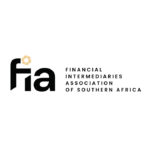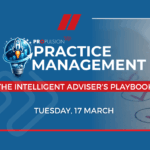Biography
Before Reana’s appointment as Ombudsman for Banking Services in 2017, she held positions such as the Deputy Ombud at the Office of the Credit Ombud, Senior Manager in the Regulatory and Compliance services division at KPMG and legal advisor for the National Credit Regulator as well as for a leading insurance company. Reana holds BCom (Law) and LLB degrees and is an admitted attorney, having spent about nine years of her career at the international firm of Norton Rose Fulbright, specialising in matters as diverse as aviation and medical negligence. This was followed by a further decade specialising in insurance law. She also currently holds the position of Chair of the International Network of Financial Ombudsman.
What is a bank customer to do if she feels hard done by? Is there any recourse if trying to lodge an objection or complaints have fallen on deaf ears or if the helpline is being particularly unhelpful?
There is recourse for South African banking consumers. The name has changed a few times since the Ombud for the banking industry was set up in 1997, but the Ombudsman for Banking Services today is a strong and vital part of the financial sector’s architecture.
Reana Steyn, who has held the office of CEO and Ombudsman for Banking Services since 2017, stresses that the primary role of her office is “to provide recourse to the aggrieved customers by putting things right”.
The word “ombudsman” has its origins in Scandinavia and is linked to the idea of being a representative or proxy for someone else. In the case of the South Africa office of the Ombudsman for Banking Services (OBS), this means receiving, investigating and resolving complaints between banks and their customers relating to advice, services or products provided to them by the bank. This only applies to banks that are members of the Banking Association of South Africa (BASA).
Says Steyn, “Any bank customer who has suffered a loss as a result of the bank’s mistake, negligence or maladministration or if the bank has violated a customer’s rights, abused its powers or made a decision that the customer believes is unfair, the customer can report the transgression to us.”

The OBSSA is not a court of law, but it can and does, reports Steyn, act as “an alternative dispute resolution body, which, free of charge, assists bank customers resolve their queries with the banks”.
The first objective is to ensure that, where there was wrongdoing on the part of the bank and the customer suffered loss as a result, the customer is put in a position he/she would have been in had there been no wrongdoing by the bank.
But the OBS can impose sanctions. As Steyn says, “We also have authority to impose a distress and inconvenience award of up to R50 000.” The amount imposed would depend on the merits of each case. The intention, notes Steyn, is neither “to enrich the customer or punish the bank” but to ensure that mistakes are corrected and where possible, avoided in the future.
Ombud services are free
“We have assisted thousands of customers and recovered millions of rands for customers,” reports Steyn. In many cases the people who were helped would not have been able to afford to take the banks to court.
“Our successes are published as case summaries in our annual report, website and press releases with the aim of providing awareness of our services to the South African banking public. The case studies also serve to warn the public of the prevalent scams that they may fall victim to as well as alert them of the unethical practices from the banks should we identify them,” adds Steyn.
The independence of the OBS is carefully protected. The board of the OBS has a majority of directors who are unrelated to banking and it is that board that appoints the Ombud. Steyn is clear on the importance of independence: “For any Ombud to acquire the trust of the community that it serves, it must not only profess to be independent but must be seen by the community it is established to assist as being independent.”
The OBS employs admitted attorneys with work experience due to the legal nature of the work done as well as the professional services that are offered to South Africans who ordinarily would not be able to afford to pay for a lawyer.
The staff are expected to possess good ethics, fairness, good communication skills, be hardworking, team players, nonjudgmental and have the ability to remain neutral in conflict-resolution situations.

What to watch for
In terms of volumes of complaints to the OBS, fraud normally provides the highest number. This is followed by service-related complaints, maladministration and complaints relating to bank customers being debt stressed.
Steyn is acutely aware of what the country’s scamsters are up to and cautions, “South Africans should be wary of the phishing, vishing and smishing scams. These involve the fraudsters sending deceptive emails (phishing), SMS messages (smishing), or making phone calls pretending to be from the bank or some other legitimate organisation or service provider (vishing). Victims are requested to insert their Internet banking passwords and PINs into the links sent to them via emails or SMSs purporting to be from the bank or tricked into sharing their bank card numbers and/or OTPs as part of a verification process or by claiming that there is an urgent need for it.“ Unfortunately, the victims fall for the scam and unwittingly reveal their confidential banking details and discover once their accounts have been depleted that they were being defrauded.”
Other scams to watch for are where the fraudsters call their victims pretending to be from the bank. They then inform the victims of an alleged fraud taking place in their accounts and convince them to provide their Internet banking access details. They then log onto the account of the victim and transfer the funds into their accounts under the pretext that the funds are being moved to safety.
The other big one to be wary of, says Steyn, is, “SIM swapping fraud, where the fraudsters deceive the victim’s mobile service provider and get a new SIM card with the victim’s phone number. With the victim’s incoming calls and messages now diverted to the fraudster’s device, they can intercept OTPs and gain unauthorised access to the victim’s online accounts or perform fraudulent transactions.”
South Africans are advised to remain vigilant and to be aware that no bank or legitimate organisation will ever send a customer link requesting them to provide their confidential banking details, nor would they ever call a customer and request their confidential details.
Contact details
OBS Call Centre: 0860 800 900
Email: info@obssa.co.za
Whatsapp: +27 66 473 0157
Website: www.obssa.co.za













